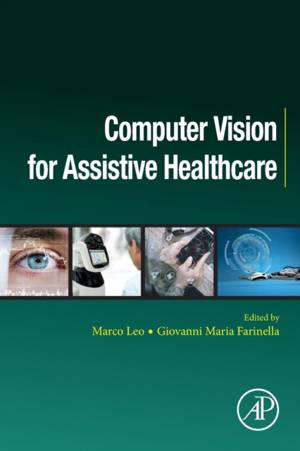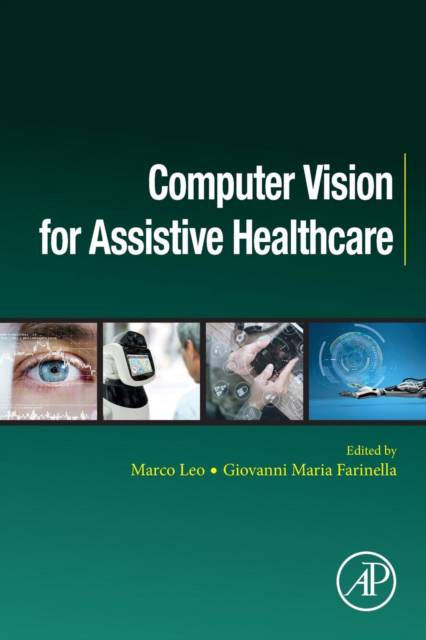
- Retrait gratuit dans votre magasin Club
- 7.000.000 titres dans notre catalogue
- Payer en toute sécurité
- Toujours un magasin près de chez vous
- Retrait gratuit dans votre magasin Club
- 7.000.0000 titres dans notre catalogue
- Payer en toute sécurité
- Toujours un magasin près de chez vous
Computer Vision for Assistive Healthcare
Description
Computer Vision for Assistive Healthcare describes how advanced computer vision techniques provide tools to support common human needs, such as mental functioning, personal mobility, sensory functions, daily living activities, image processing, pattern recognition, machine learning and how language processing and computer graphics cooperate with robotics to provide such tools. Users will learn about the emerging computer vision techniques for supporting mental functioning, algorithms for analyzing human behavior, and how smart interfaces and virtual reality tools lead to the development of advanced rehabilitation systems able to perform human action and activity recognition.
In addition, the book covers the technology behind intelligent wheelchairs, how computer vision technologies have the potential to assist blind people, and about the computer vision-based solutions recently employed for safety and health monitoring.
Spécifications
Parties prenantes
- Editeur:
Contenu
- Nombre de pages :
- 396
- Langue:
- Anglais
- Collection :
Caractéristiques
- EAN:
- 9780128134450
- Date de parution :
- 16-05-18
- Format:
- Livre broché
- Format numérique:
- Trade paperback (VS)
- Dimensions :
- 152 mm x 229 mm
- Poids :
- 526 g

Les avis
Nous publions uniquement les avis qui respectent les conditions requises. Consultez nos conditions pour les avis.





